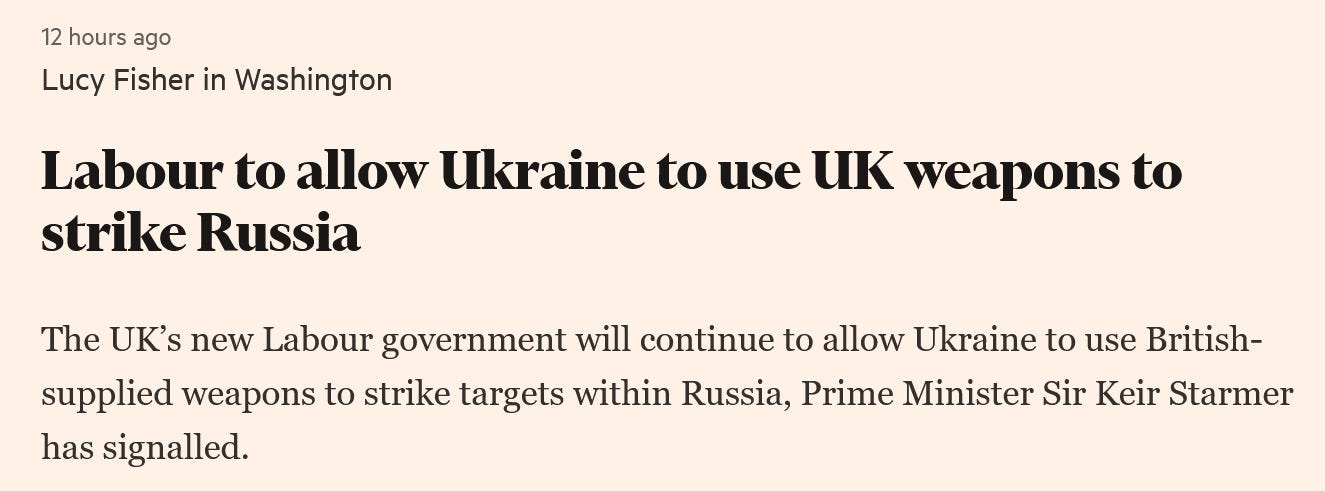Weekly Grounding #55
News, links, writing
Weekly Groundings are published every Friday to highlight the most interesting news, links, and writing I investigated during the past week. They are designed to ground your thinking in the midst of media overload and contribute to Handful of Earth’s broader framework. Please subscribe if you’d like to receive these posts directly in your inbox.
“‘We’re Not Dead Yet.’ Baby Boomers’ Good Times Drive the Economy”
The Wall Street Journal reports on Georgetown, Texas, which has “been the No. 1 city for population growth for three years in a row, according to an analysis of Census Bureau data for cities with populations of at least 50,000. Georgetown grew nearly 11% in 2021, another 14% in 2022, and 11% again last year.”
This rapid growth has been driven by baby boomers. The city’s mayor remarks: “It’s like they’re at college except they don’t have to go to class and they have $3 million in the bank…It’s almost like a cruise ship on land.”
This trend is not isolated to Georgetown: “Older Americans are emerging as major drivers of the economy. Their stock portfolios, retirement savings and paid-off homes have swelled in value over decades of growth. Hours once spent raising young children and working can now be devoted to golf, concerts and brunch. Today, Americans 55 and over control nearly 70% of U.S. household wealth, according to the Federal Reserve. In 1989, the first year of available data, they controlled just 50%. Their dollars amount to 45% of U.S. personal spending, according to Moody’s Analytics, up from 29% three decades ago.”
“The Art of Training Young People”
Turning to youth and the economy,
discusses apprenticeship at . He writes that “Apprenticeships work so well because the skills of the craftsman are holistic. If you go to a master carpenter you expect to employ someone who not only knows how to make a chair of a certain set of dimensions but someone who can ‘work with wood’ along with all that such working entails. This calls for a kind of skill that is complex, generative, and fully embodied…As industrial society developed however, rather than the well rounded craftsman of the early modern times we needed more individuals that could operate in a factory setting doing one thing very well. In such a model the need for a long period of training fell away.”Parry concludes: “In our noble drives to democratize access to the liberal arts and our cultural valourization of the dropout entrepreneur we have inadvertently looked down on the creative capacity, economic windfall, and social liberation that can come from apprenticeships. As we seek as individuals and as a society to find new avenues for building capability we would be wise to rediscover this form.”
“Columbia Removes Three Deans, Saying Texts Touched on ‘Antisemitic Tropes’”
The New York Times reports on the latest censorship campaign at Columbia University, where three deans were removed after photos of their text messages were clandestinely captured and posted on the internet: “The three administrators and Dr. Sorett were in the audience, and a person sitting behind Ms. Chang-Kim photographed the text messages she was exchanging with her colleagues. The images were shared with The Washington Free Beacon, a conservative website, which published an article. Dr. Patashnick texted that one panelist was ‘taking full advantage of this moment.’ ‘Huge fundraising potential,’ he wrote.”
Columbia’s decision to remove these deans for privately alluding to the very real influence of the Israel lobby in a group chat sets a terrifying precedent for censorship and spying on college campuses. This, however, is apparently not enough for Columbia: “The university also announced on Monday that beginning this fall, Columbia students, faculty and staff will undergo required anti-discrimination training that will include a focus on antisemitism.”
“Letter: Seize Peace in Ukraine Before It’s Too Late”
The Financial Times publishes an open letter by a group of journalists, academics, and diplomats calling for peace in Ukraine: “Washington should start talks with Moscow on a new security pact which would safeguard the legitimate security interests of both Ukraine and Russia. The announcement of these talks should be immediately followed by a time-limited ceasefire in Ukraine. The ceasefire would enable Russian and Ukrainian leaders to negotiate in a realistic, constructive manner. We urge the world’s leaders to initiate or support such an initiative.”
The letter continues: “The longer the war continues the more territory Ukraine is likely to lose, and the more the pressure for escalation up to a nuclear level is likely to grow. The sooner peace is negotiated the more lives will be saved, the sooner the reconstruction of Ukraine will start and the more quickly the world can be pulled back from the very dangerous brink at which it currently stands.”
The appearance of this letter in a leading British newspaper is all the more significant in light of the new Labour government’s continued escalation in Ukraine:
“Why They Killed Gaddafi”
In this piece from the archives of the Institute of Arts and Ideas,
documents the motives for the 2011 Western regime change operation in Libya: “It was thanks to the 2016 publication of Hillary Clinton's emails that the reason behind NATO’s entry into Libya was revealed. It was to prevent the creation of an independent hard currency in Africa that would free the continent from its economic bondage under the dollar, the IMF and the French African franc. That hard currency would have allowed Africa to shake off the last heavy chains of colonial exploitation.”Brown continues: “Of the 3,000 emails released from Hillary Clinton's private email server in late December 2015, about a third were from her close confidante Sidney Blumenthal. One of these emails, dated April 2, 2011, read in part”:
Qaddafi's government holds 143 tons of gold, and a similar amount in silver...This gold was accumulated prior to the current rebellion and was intended to be used to establish a pan-African currency based on the Libyan golden Dinar. This plan was designed to provide the Francophone African Countries with an alternative to the French franc (CFA). According to knowledgeable individuals this quantity of gold and silver is valued at more than $7 billion. French intelligence officers discovered this plan shortly after the current rebellion began, and this was one of the factors that influenced President Nicolas Sarkozy's decision to commit France to the attack on Libya.
“First-Responder Trauma: A New Framework for Activists”
argues for the necessity of both resistance and healing at : “To insist either on personal healing in isolation from the world, or on social change without a recognition of the role which personal healing plays in that process is to condemn us to repeat cycles of trauma. Without being linked to political struggle, self-care becomes yet another Global North lifestyle turned into multi-trillion dollar industry.”He continues: [W]ithout rooted, soulful practices of self- and collective-care, I am convinced that our movements will flounder. Much of this conviction comes from my own experiences in activism. Over and over, I have observed people reacting from ingrained trauma patterns with emotions, words, and behaviors that are harmful to collective organizing efforts. I have done this myself. If there is one thing we will need in order to face the challenges the future will bring, it is our highest selves — not our addicted, traumatized, reactive selves, but our selves in full bloom. So, as we seek to change the whole world, we should not neglect the one person we have the greatest power to affect.”
What grounded your thinking this week? Feel free to share in the comments.





Wow thank you so much for the shoutout. This is a wonderful framing for a newsletter.
Thanks, Vincent.
"...the creation of an independent hard currency in Africa that would free the continent from its economic bondage under the dollar, the IMF and the French African franc. That hard currency would have allowed Africa to shake off the last heavy chains of colonial exploitation.”"
Hmm, sorry, money is the core of the problem. Changing the form of money, the particular currency, is NOT gonna shake off the problems which are rooted in the very system of commodity production. Karl Marx discussed this a bunch of times in Capital and its foundational notes, the Grundrisse. Ellen Brown has long pitched "good currency" as a solution to the problems of capitalism, promoting stuff such as Modern Money Theory and state-owned banks, putting forth the Bank of North Dakota as an example, never mind the massive eco-rape behind the wealth which has enabled this bank to prosper.
A critique of MMT, is included in this article written by "my underground twin brother" Jack Straw in 2012,
https://dailybattle.pairsite.com/2012/occupy_target_destroy_ruling_money_fetish.shtml
Why did the US government turn on Gaddafi? Check out these two items.
Clinton-Gaddafi jpg 2009 https://commons.wikimedia.org/wiki/File:Mutassim_Gadaffi_Hilary_Clinton.jpg
Gaddafi's son Mutassim Billah Gaddafi, national security adviser, visited the State Department in Washington DC in April 2009, Hilary raised a toast to him.
The Gaddafi regime worked well with the US government right up to February 2011. It conducted some extraordinary renditions for the CIA in the wake of 9/11, and adopted an "economic reform" program "suggested" by the IMF. The Economy Minister who was in charge of that became a leading government figure after Gaddafi's ouster.
At the time fighting broke out in the streets of Libyan cities in February 2011, another of Gaddafi's sons, Khamis, commander of the elite army unit named after him, the Khamis Brigade, was in the US, touring US military bases.
https://www.washingtonpost.com/world/us-officials-assisted-visit-by-gaddafi-son/2011/03/25/AFT017YB_story.html
He was allowed to leave and go home to assume his command. The US government decided the Gaddafi regime was not gonna survive the upsurge, and thus turned on it. Amazing, all the revisionist historical accounts trying to make this naked power calculation into some sort of deep conspiracy.